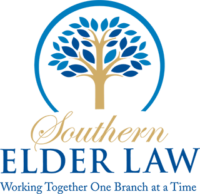A guardianship is a legal relationship created by a court between a guardian and his or her ward, either a minor child or an incapacitated adult. The guardian has a legal right and duty to care for the ward. This may involve making personal decisions on his or her behalf, managing property, or both. Usually, a person has the status of guardian because the ward is incapable of caring for his or her own interests due to infancy, incapacity, or disability.
A conservatorship, is a legal process, used when a person can no longer make or communicate safe or sound decisions about his/her person and/or property or has become susceptible to fraud or undue influence. A guardianship is also used for minors in certain circumstances.
Because establishing a guardianship and/or conservatorship may remove considerable rights from an individual, it should only be considered after alternatives to guardianship and/or conservatorship have proven ineffective or are unavailable.
Alternatives to guardianship may include:
- Representatives or substitute payees
- Case/care management
- Health care surrogacy
- Trusts
- Durable powers of attorney for property and health care
- Living Wills
- Community advocacy systems
- Joint checking accounts
- Community agencies/services
Alternatives to conservatorship may include:
- Durable power of attorney
- Joint checking accounts
- Trusts
